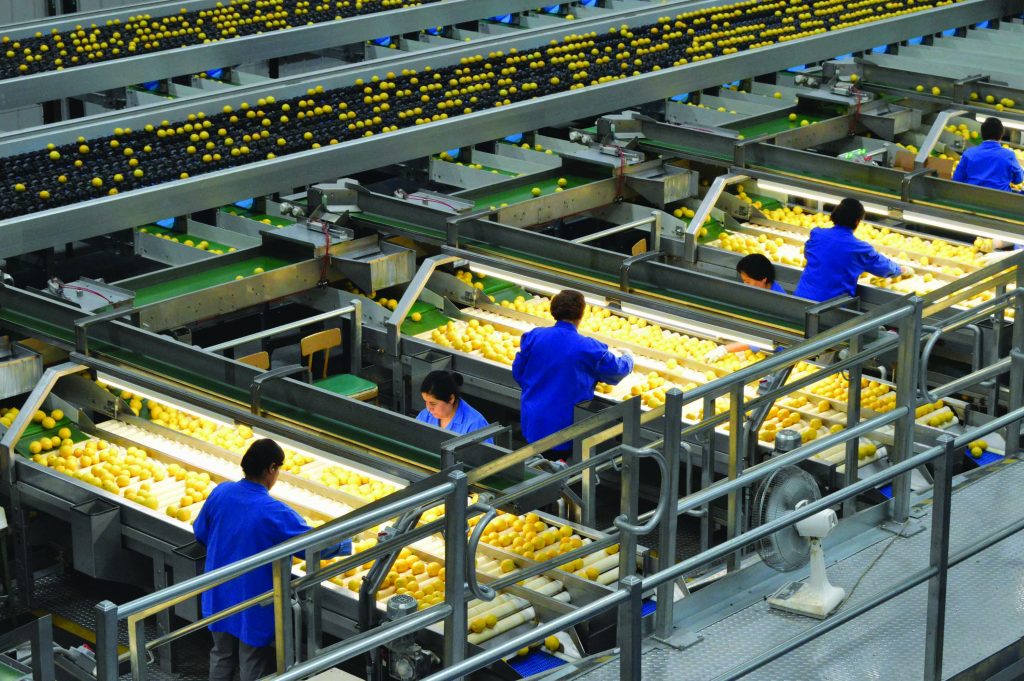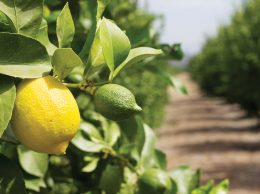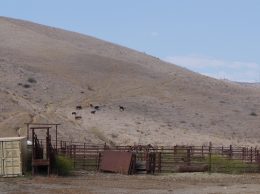
Workers process lemons in Limoneira’s new packinghouse in Santa Paula.
Santa Paula agribusiness Limoneira reported increased revenues for the fourth quarter and fiscal year 2016, exceeding its guidance with an operating income of $9.2 million.
Net income applicable to common stock, after preferred dividends, was $7.4 million for the year, or 52 cents per common share, up from $6.4 million in 2015. The company had announced expectations of operating income between $8.6 million and $9.1 million, with earnings of 45-50 cents per share.
Revenues increased 37 percent for the fourth quarter over the same period in 2015 on stronger lemon sales in its agribusiness division. The company sold 521,000 cartons during the quarter, versus 388,000 the previous year, with a 91 cent bump in price per carton to nearly $26.
Costs and expenses increased slightly for the fourth quarter but still came in lower for the year than in 2015, while revenues increased 11 percent to $111.8 million. Operating loss for the fourth quarter was $887,000, compared to a $4.9 million loss in the fourth quarter of 2015. Net loss applicable to common stock for the quarter, after preferred dividends, was $100,000 or 1 cent per share, including a $1 million gain on the sale of a conservation easement to The Nature Conservancy.
During the latter half of the year, its new packing facilities increased production to 1,400 cartons per hour, putting the company on good footing as it brings nonbearing acreage online in 2017, said President and CEO Harold Edwards. Limoneira also plans to plant an additional 500 acres over the next few years and engage additional third party growers in its distribution.
Specialty citrus and other crop revenues were $1.2 million in the fourth quarter. The fiscal year total for the segment included around $300,000 from Limoneira’s first wine grape harvest from its Windfall Farms ranch. The vineyard harvested around 200 tons of grapes from around half of the 200 acres that have been planted over the last two years, and has another 100 acres coming online in 2017, Edwards said.
Limoneira stated an expectation to sell 3.1 million-3.5 million cartons of fresh lemons for an average of $23 per carton in the upcoming fiscal year, as well as approximately 8.5 million-9 million pounds of avocados for around 80 cents per pound.
“Burgeoning middle classes and burgeoning economies” in developing countries are making large investments into retail and restaurant offerings, Edwards said, offsetting potential competition from new sources of supply like Argentina.
“It may be slightly disruptive at periods of time as we figure out who’s going to be in what market and at what grades,” he said, but added that Argentinian producers will likely concentrate more heavily on juice, oil, and industrial production, rather than fresh utilizations.
Similar timing in production could reduce market share for California growers, he said, but the produce would only account for up to 10 percent of U.S. consumption, becoming “another source of supply that ultimately will complement our global supply chains.”
• Contact Marissa Nall at mnall@pacbiztimes.com.






 Print
Print Email
Email

















